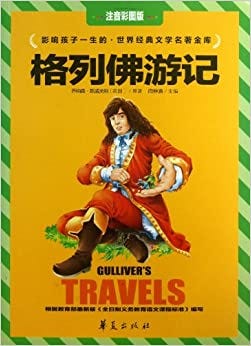I have been thinking about how individual collectors may donate their collections so that everyone can use them to learn.
Jonathan Swift (30 November 1667 – 19 October 1745) is a good example.
Jonathan Swift1 was an Irish author and satirist. Best known for writing Gulliver's Travels2 he was dean of St. Patrick's Cathedral in Dublin and also wrote A Tale of a Tub3 and The Battle of the Books4 and A Modest Proposal For preventing the Children of Poor People From being a Burthen to Their Parents or Country, and For making them Beneficial to the Publick (1729).
Swift is renowned for his satire and is the most popular Irish author as measured by copies of Gulliver’s Travels in libraries world-wide.5
From Gulliver’s Travels come words and ideas used today:
Lilliputian as an adjective meaning "small and delicate"
yahoo for "a rude, noisy, or violent person"
big-endian and little-endian are used to describe two possible ways of laying out bytes in memory.
Trinity College Dublin
On the 350th anniversary of Swift’s birth Trinity College Dublin marked the event in many ways.6 The Library’s world-renowned collection of Swift-related books and manuscripts was on display. This collection was developed partly through gift and bequest and the exhibition showcases particularly the generous bequest of American Swiftian A. C. Elias.
Elias was an independent scholar from Philadelphia, Pennsylvania, who published widely on Swift and his circle. During the course of his work he assembled a magnificent collection of books and manuscripts which he divided between two institutions, Trinity College Dublin and the University of Pennsylvania. Elias bequeathed his impressive 18th– and 19th-century Swift and Swiftiana collection, along with 20th-century reference material, some working papers and a small number of notable manuscripts.
Monash University Library, in Melbourne
The Rare Books Collection at Monash University Library, in Melbourne, Victoria—houses one of the world’s finest Jonathan Swift collections. The core of the collection was acquired in 1961, the same year the University was founded, from the distinguished Australian-born musician and local collector David Woolley. Mr Woolley was a friend of Emeritus Professor W. A. G. Scott, the first professor of English at Monash University and Deputy Vice-Chancellor at the time of his retirement in 1981. Mr Woolley subsequently became editor of Swift’s correspondence, and continued to advise and act on behalf of the Library in the purchase of additional Swift items.7
THE EHRENPREIS CENTRE FOR SWIFT STUDIES (Münster).
THE EHRENPREIS CENTRE FOR SWIFT STUDIES8 is a research institute founded at the Westfälische Wilhelms-Universität, Münster, in 1986 to commemorate the leading Swift scholar of his generation, Irvin Ehrenpreis.In addition to the entire history of Swift criticism from 1750 to the present day, its library provides all major editions of the Dean’s collected works, many editions of individual pamphlets and poems, as well as the world’s largest reconstruction of Swift’s library in identical imprints.
China
Gulliver’s Travels was the first foreign literary work to be translated into modern Chinese (1872).9 There have been 1400 editions published in China.
Damrosch, Leopold. Jonathan Swift: His Life and His World.. New Haven, Conn: Yale University Press, 2015.
Gulliver's Travels, or Travels into Several Remote Nations of the World. In Four Parts. By Lemuel Gulliver, First a Surgeon, and then a Captain of Several Ships (1726).
1694–1697. Published 1704.
It depicts a literal battle between books in the King's Library (housed in St James's Palace at the time of the writing), as ideas and authors struggle for supremacy.
"What is the most popular Irish book?". The Irish Times. 2 December 2017.
Jonathan Swift 350. Trinity College Dublin, 2017.
Swift Exhibition. Monash University.
EHRENPREIS CENTRE FOR SWIFT STUDIES. Westfälische Wilhelms-Universität, Münster. est 1986. Swift Criticism Database.
Jung, Sandro. (2021). “Gulliver’s Travels Illustrations in China” The Book Collector 70 (winter): 665-679.







"He had been eight years upon a project for extracting sunbeams out of cucumbers, which were to be put in vials hermetically sealed, and let out to warm the air in raw inclement summers." --Gulliver's Travels
It is nice to know that people all around the world can appreciate the same kind of satire. We are not so different after all.